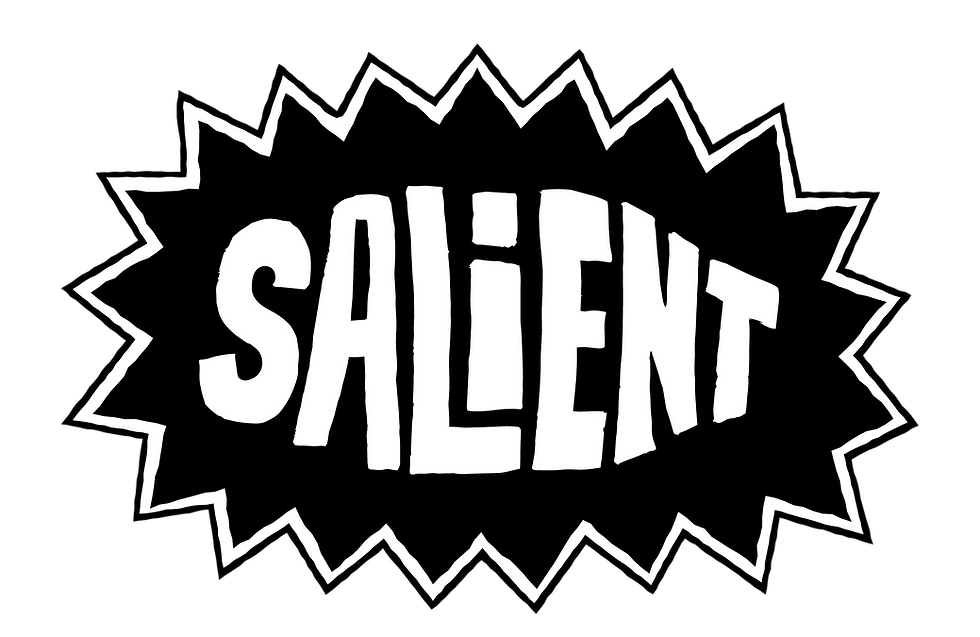Beyond the Colonial Blindfold
- Salient Magazine

- Apr 14, 2025
- 3 min read
Will Irvine (he/him)
“Capitalism attacks and destroys all the finer sentiments of the human heart; it ruthlessly sweeps away old traditions and ideas opposed to its progress, and it exploits and corrupts those things once held sacred.” - Daniel DeLeon
If you’ve read any book of anti-colonial theory in the past five years, chances are it was Imagining Decolonisation. The small collection of essays, penned by a collective of prominent Māori authors (including the late Moana Jackson and Salient contributor Mike Ross) and scholars, has had an outsized impact on the increasing discourse around decolonisation.
Imagining Decolonisation has succeeded precisely because it identifies the problem that most critics of capitalism and colonialism find themselves trapped in. It is very easy to identify what is wrong with our current system of living, but it is substantially more difficult to imagine a way out. In the words of Frederic Jameson, “it is easier to imagine the end of the word than it is to remember the end of capitalism”. It is within this crisis that the Western left finds itself drawn into endless circles, relentlessly re-litigating ancient conflicts dating back to the now-extinct communist movement of the 20th century. Within this seemingly endless paradigm, a sense of hopelessness sets in — something that theorist Mark Fisher called “capitalist realism”.
Aotearoa New Zealand is uniquely positioned to escape this crisis. This is precisely because of our founding document. The world that Te Tiriti presumes is a world where an indigenous nation is given unimpeded sovereignty to govern free from the forces of capital and imperialism. In essence, Aotearoa is a nation whose foundational text is hostile to capitalism.
Because of this, reading and discussing Te Tiriti is a generative exercise in creating new worlds. With unique energy and dynamism, Te Tiriti breaks free from the imaginative constraints of capitalism. Because the world that Te Tiriti asks us to imagine is so different from the world we exist in, a certain level of escape takes place. The mind, whether tangata whenua or tangata Tiriti, is forced to think outside the constraints of imperialism.
Tino rangatiratanga is one such concept. Western philosophy has attempted to envision tino rangatiratanga as a degraded notion of “self-sovereignty” or “self-governance”. This reductionist view ignores collectivity and social responsibility, and thus gets tino rangatiratanga completely wrong. It is particularly telling that, when interpreted through the lens of Western philosophy, tino rangatiratanga is essentially treated as far-right libertarianism! This, of course, is just the problem with trying to read Māori concepts through a Western lens — you inevitably reproduce your own prejudices.
When understood as Māori’s collective right to govern their own communities, tino rangatiratanga is a roadblock to capitalism’s eternal conquest. Capital attains dominance in communities by isolating the individual, promising prosperity with one hand whilst stripping away everything that makes prosperity worthwhile with the other. This is not exclusive to colonisation — Karl Marx famously declared that, within the destructive engine of capital, “all that is solid melts into air, all that is holy is profaned.” However, it is undoubtedly at its apex when weaponised by capital to destroy indigenous forms of living. Across the globe this is true, but it is particularly true in Aotearoa. The Crown found themselves unable or unwilling to destroy Māoritanga by force, so they instead applied the levers of capitalism and institutional subjugation.
So, how can Te Tiriti o Waitangi be used as a weapon against the world-ending engine of capital? To a certain extent, we must begin by rejecting the capitalist formation of “decolonisation” — that is, of economic gain without economic justice, of political representation without political power, and of cultural tokenism without cultural rebirth. More than that, though, Te Tiriti needs to be utilized as a device for expanding minds, particularly those of tangata Tiriti. For us to be able to build a collaborative future alongside Māori, we must be able to envision futures in the same way that Māori do, and this involves breaking our own chains. Just as a caged dog can never bite its owner, a caged mind can never fight oppression.




Comments